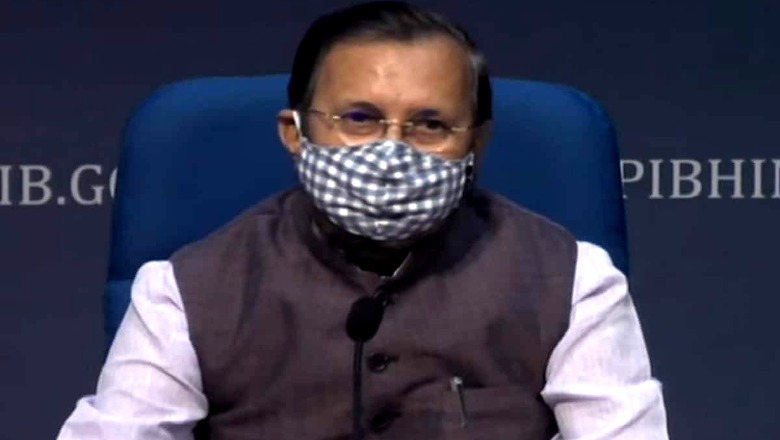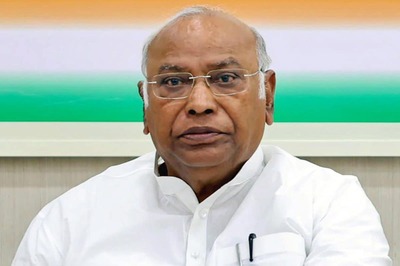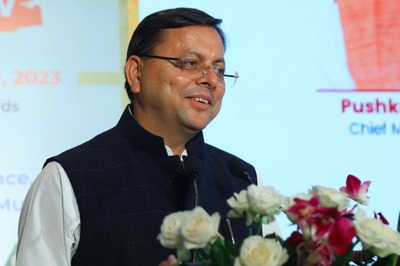
views
A day after the US formally exited the landmark Paris climate agreement, Union environment minister Prakash Javadekar reiterated that India is on a path to meet its climate action goals, however, the costs of these actions need support from the world to cut emissions faster. Though the minister did not comment on the US exit from the climate agreement, Javadekar said that low emissions are feasible with the right technology at the right time.
The environment minister was speaking at the ministry’s ‘India CEO Forum on Climate Change’, which saw honchos of 20 top corporates outlining their commitments to decarbonize in the next 10-15 year period.
“India is walking the talk on climate action. We are 2 degrees compliant in action and contributions. That is why we are asking others to walk the talk, to be compliant with Paris agreement,” Javadekar said.
The minister said that India has to be clean for its own good and thus has to limit pollution even though its contribution to the global greenhouse gas emissions stands at 6% and per capita per annum emissions half of the world average.
“Every climate action has a cost and that cost is an important barrier in making advancements. We must be made available technology at an affordable cost. I am always appealing to them that they should not profit from disaster. Low emissions would be possible if we have the right technology available. The world needs to provide to developing economies so that their emissions go down,” Javadekar added.
The ministry and the 24 corporates issued a declaration on climate change committing to coordinated action with the government to meet India’s obligations under the Paris climate agreement. The commitments made by the corporates ranged from increasing share of renewable energy in operations, enhancing energy efficiency, material efficiency, water use efficiency and recycling to name a few.
Top executives of Tata Motors, Reliance Industries, ITC, Piramal, ACC Cement, Dalmia Cement, Lafarge, Mahindra, Adani Transmission, Vedanta, Ambuja Cement, Sun Pharma, Essar, Suzlon, Hindustan Power, SRF, Renew Power and Nayara Energy spoke at the forum outlining their plans to combat climate change.
As per the declaration, private sector companies will have to develop and submit an annual report to MoEFCC providing qualitative and quantitative information on their contributions. “We will be preparing a format for these submissions in the coming days. This report will include contributions from the ongoing financial year,” said RP Gupta, Secretary, Ministry of Environment, Forest and Climate Change.
Under the Paris agreement, India has committed to increase share of non-fossil fuels to 40% by 2030; reduction in emissions intensity of Gross Domestic Product by 33-35% by 2030 from 2005 levels and addition of 2.5 to 3 billion tonnes of carbon sink by enhancing forest and green cover.
Read all the Latest News, Breaking News and Coronavirus News here




















Comments
0 comment